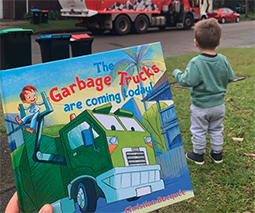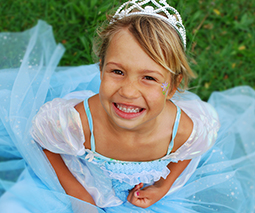Wobbles and meltdowns: How to support teary and emotional little boys

Recently, the Feed Play Love Helpline fielded a distress signal from a mum who was struggling to come to terms with her little boy’s behaviour.
Meltdowns all day long
Rosanna, a mum of a four-year-old, asked mothercraft nurse Chris Minogue if her very emotional son’s behaviour was ‘normal’ for a child of his age.
“My four-year-old son seems to be very emotionally unstable,” Rosanna explained. “He seems to be crying and having a meltdown about everything and anything all day. Is this a typical age-related phase or something more?”
Chris had reassuring news for Rosanna – and other parents of kids who feel a little bit wobbly a lot of the time.
“I think this is very typical of boys,” Chris explained. “I think they’re very fragile from about three to three and a half, through to about four.”
Read more about kids’ behaviour:
- Why do kids lie, and when should parents be concerned?
- Runaway babe: What to do if your child is a ‘bolter’
- 7 REALLY annoying toddler behaviours that are actually pretty important
Busy, preschool days
The pace of preschool life can take a toll on kids, and little boys especially may struggle to adapt in their third or fourth years, Chris says.
“I actually think they have really busy days and they’re really tired,” she confirmed. “I think more than anything that plays a part in it. It’s not at all uncommon for little boys to be emotionally wobbly in this age group.”
Taking a deep breath and looking at the world from your child’s perspective can provide some important insight – and solutions – for parents.
“Think about what’s going on for him,” Chris suggests. “So you know he’s got long days at daycare, which you can’t change. But is he feeling like he’s not getting enough time from you?”
Listen to mothercraft nurse Chris Minogue on the Kinderling Helpline:
Quality time and routine shifts
Giving your child some dedicated one-on-one time, and helping him regain some control of his little life may also help smooth out those bumpy days.
“Sometimes just sitting down and letting him lead the play by saying ‘let’s sit down for 10 minutes and you tell Mummy what you want to do’ in terms of play. Just give him back a little bit.”
So is this something you’re into for the long haul with your little boy? Chris says definitely not.
“It’s often common in this age group … and anywhere between three to four, it just disappears.”
This quick transition to a much less emotional state usually coincides with routine shifts.
“I actually think it disappears when they’re physically doing much more, so when they’re doing things like soccer or some sort of activity that uses up energy, it sort of stabilises it. I think it’s really common.”
“I think girls go into it at about four and I’m not quite sure if they ever come out of it!”









